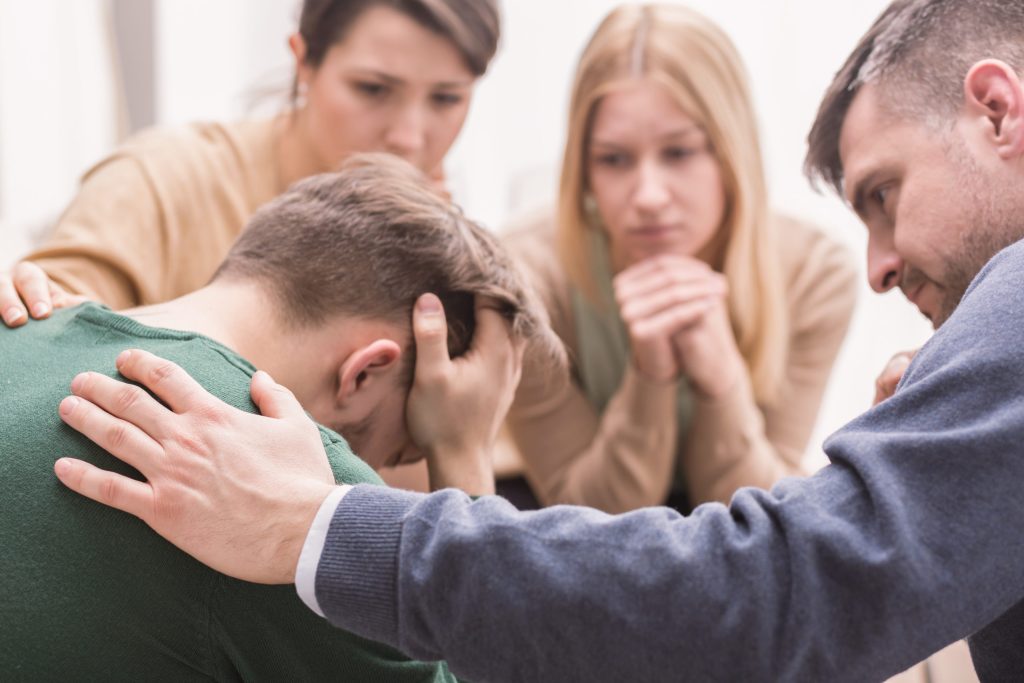
How To Help A Loved One Battling With Drug Addiction
Legacy Healing Center Blog
Everyone has a loved one addicted to something! So, the million-dollar question is, “how to help an addict.” Substance Use Disorders are categorized as primary medical diseases, not moral deficiency, or personality disorders. You would not judge your spouse or child with cancer or diabetes; would you? Therefore, the first thing you need to do is remove the label. Instead of asking yourself “how to help an addict, ask yourself, how to help someone with addiction, or how to help someone with substance abuse.” It is important to treat your relative with compassion, empathy, and love. You cannot talk it out of them! So, the question remains, “how to help someone with an addiction?”
How to Help a Drug Addict
1. The first step is to set a healthy boundary.
A boundary can be easily defined as where you end and your loved one begins. It is impossible to help someone with substance abuse if you take on their struggle as your own. As Dr. Brene Brown said, “If you know someone who is stuck in a deep, dark hole of struggle, and you take a mindless leap into that hole, well then you’re both stuck.” Dr. Brown goes on to say, “You might want to lay down on the ground, get dirty, and reach your arm into the hole, to ensure your loved one feels seen, and heard if that’s helpful.”
During my nearly two decades of experience treating individuals and families afflicted with the disease of addiction, I have drafted a script of how to help someone with an addiction. Below is an example of the script:
This is hard, but I need to detach from your disease. It is too painful for me to continue watching you destroy your life! Your addiction has caused me emotional stress and I am choosing to save myself while loving you from a distance. From this moment on, I will only support you if you are actively engaged in treatment and/or recovery program.
If you choose to return to active substance use, I will be forced to immediately cut off all communication with you. While in active addiction, I will not support you financially, emotionally, or enable your addiction to progress in any other way. This decision comes from a place of love for you, as well as the love, and respect I have for myself, and the rest of our family.
Now that you have set a healthy boundary with your relative, the question remains, “how to help someone with an addiction?”
2. Research the addiction.
Start by educating yourself about the disease of addiction, recovery from substance use disorders, and self-help support groups for both your relative and yourself. Vetting detoxification, rehabilitation, and 12-step programs are helpful while doing it over and over, repeatedly is enabling. I define enabling as interrupting the painful, negative consequences that might motivate the person struggling with addiction to change. Examples of enabling are as follows: paying for your relative’s substance of abuse, paying their bills after they have spent their money on substances of abuse, and calling your relative’s employer when they are unable to work. Another example of enabling is doing for your relative what they can do for themself. Asking your relatives to make their own doctor’s appointments, meet their own activities of daily living, and pay their own bills will improve their self-worth while fostering independence from their addiction and from you.
3. Guide them towards personal recovery and self-care.
The last step in learning “how to help someone with substance abuse” is personal recovery and self-care. Al-Anon, Nar-Anon, Al-Ateen, CoDa, and Families Anonymous are 12-step, self-help support groups for loved one’s of individuals struggling with addiction. Support groups such as these will guide you through the challenges of loving someone with addiction by learning how to cope with the chaos of addiction, the emotional pain associated with addiction, the physical pain associated with addiction, and the overall powerlessness over your relative’s addiction. There is a saying in Al-Anon known as the three (3) C’s, related to your loved one’s addiction, and it goes like this, “you didn’t cause it, you can’t control it, and you can’t cure it”. Over time, I have heard two (2) additional C’s, and they are, “you can contribute to it, and you can cope with it”.
The way you contribute is by enabling the behavior to continue without detaching from the disease. The way you cope is by accepting your powerlessness over others and their behaviors, focusing on yourself, and by practicing your own program of recovery. By placing the oxygen mask on yourself, not reacting to your relative’s behaviors, and not offering unsolicited help/advice, you will be helping your relative who is struggling with addiction.
By working on a program of recovery through one of the aforementioned self-help support groups, and practicing self-care through prayer, meditation, exercise, and nutrition, you will be modeling the same recovery program that your relative must commit to if they want to achieve long-term, ongoing recovery.